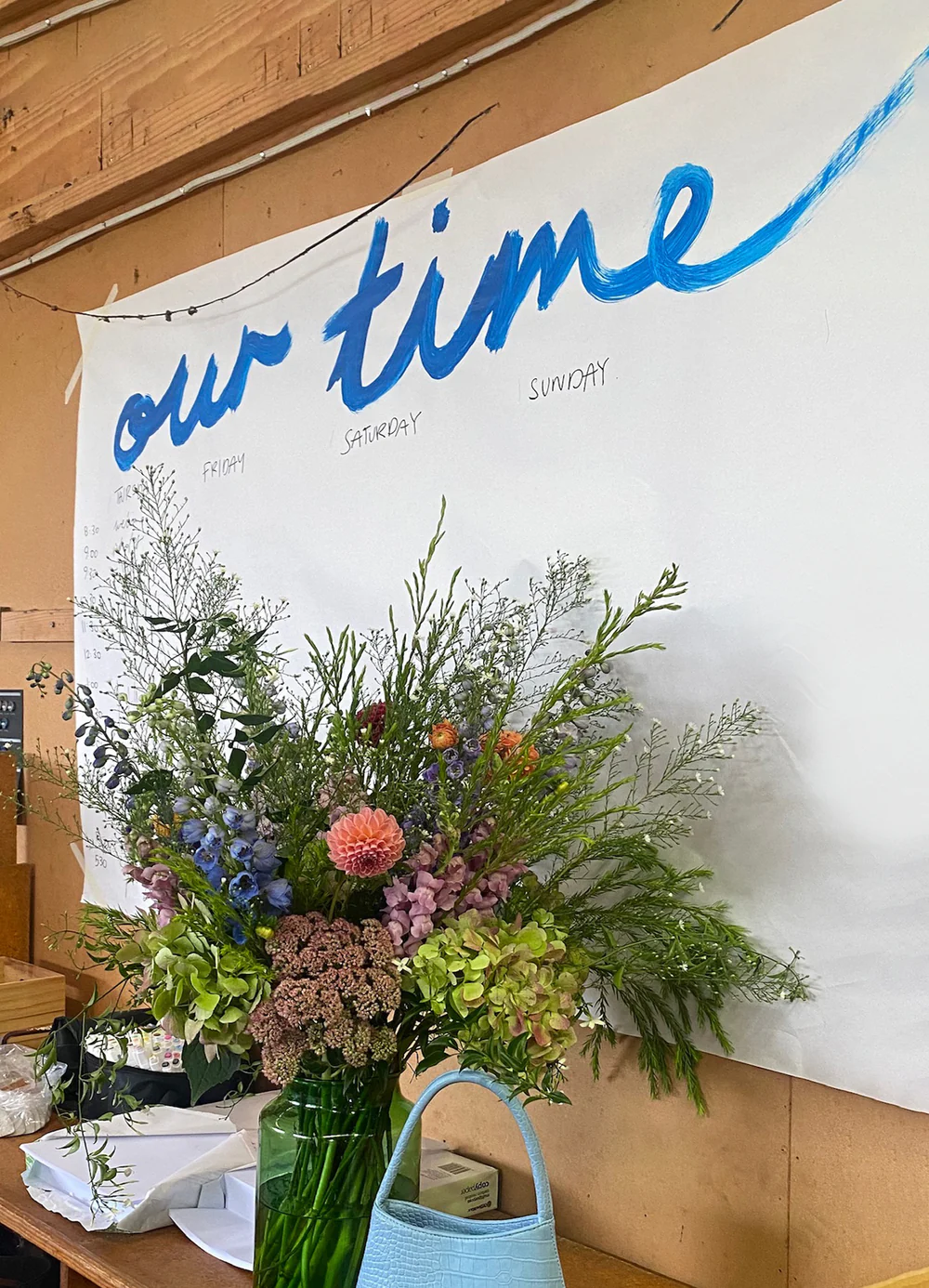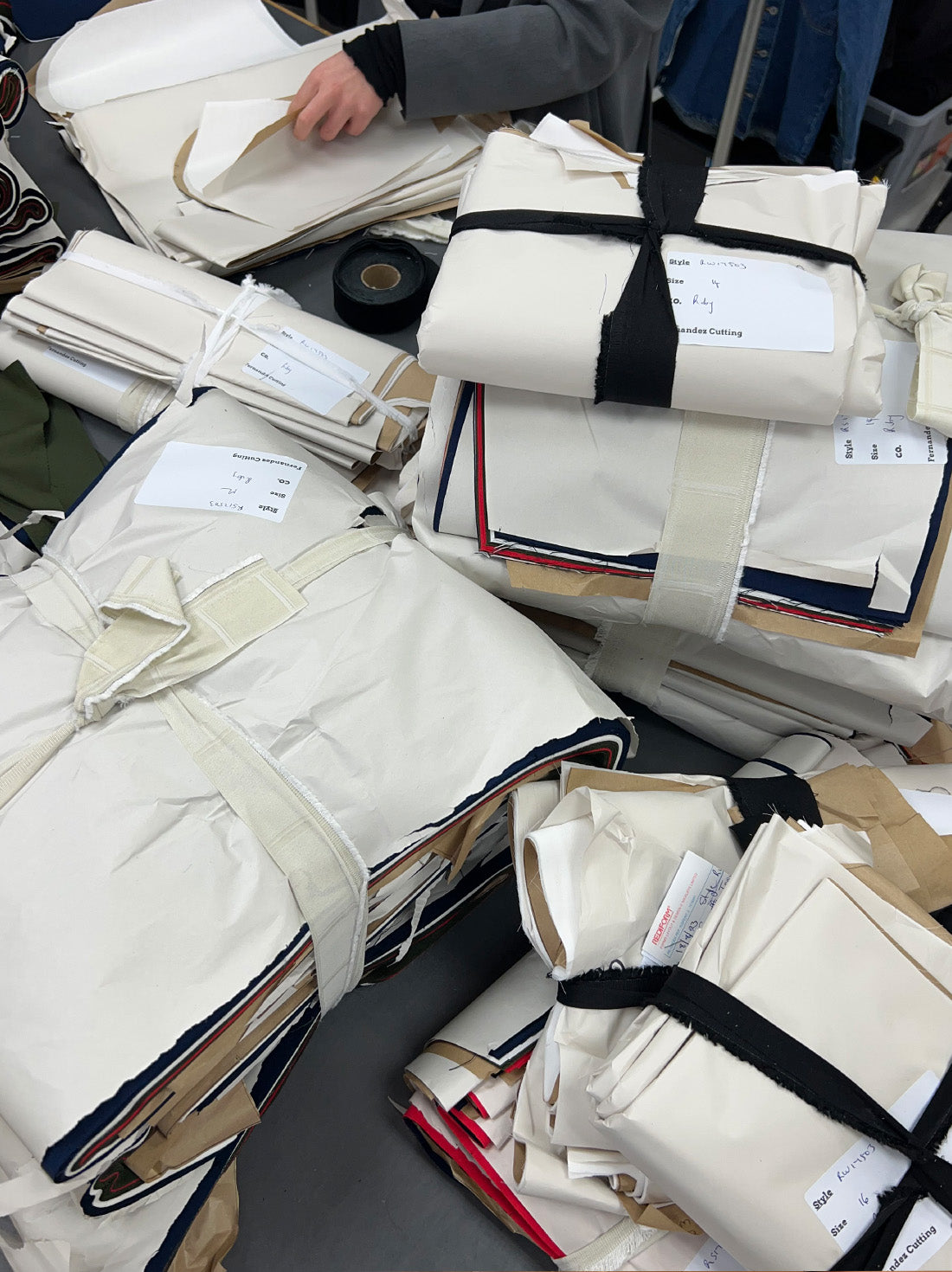Toolbox / Carbon Curious
Carbon Curious
When it comes to climate change, we all know that things have to change. Radically!
But working out the best thing to do can seem as unfathomable as a pick-a-path book when you are 6 years old??
Cue the Climate Action Programme Mindful Fashion New Zealand ran in conjunction with Ekos. In late 2022 RUBY and nine other Mindful Fashion members participated and we measured our emissions for the financial year that ended in March 2022 (FY22).
In late 2023, we worked with Toitu to complete a full audit of our emissions for the financial year that ended in March 2022 (FY22) and March 2023 (FY23). We have now updated our results here since publishing the Ekos results in early 2023.
These audits measured all things within our direct control, and for all locations within Aotearoa. This included data that was related to the daily operations in our IRL stores, and at our RUBY HQ, the freight of materials during the production process, freight to get garments from our factories to RUBY HQ, and freight to send our garments to our IRL stores or online customers. In the ‘technical’ language, this means that our footprint includes the data for Scope 1 and 2 and some of Scope 3.
- Scope 1- Direct emissions and removals.
- Scope 2- Indirect emissions from imported energy.
- Scope 3- Business travel, fuel & energy related activities, upstream transport & distribution, waste generated in operations, downstream transportation & distribution.
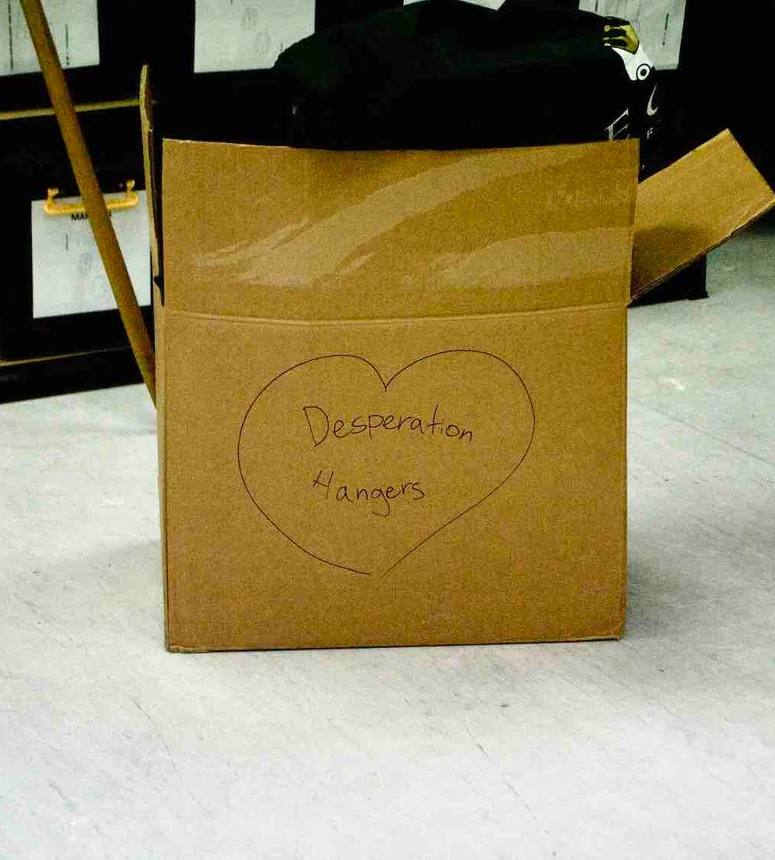
Starting this process with Mindful Fashion and Ekos was helpful as it can be very daunting. . SO MUCH DETAILED INFORMATION IS REQUIRED. But doing it with a group where you all have to meet the same deadlines, and can share and learn from each other makes the task so much more achievable.
And, for what feels like the first time, we have been given ANSWERS that are clear and simple: THIS IS WHERE YOU ARE EMITTING THE MOST, FOCUS ON THAT.
As with most sustainability initiatives, there is no single solution, but having real data has given us a clear direction on where we need to focus our efforts to have the most impact.
Why is measuring our carbon footprint important? We are aware that the climate crisis is right in front of us, and it is up to all of us to play our part to reduce our emissions. But you cannot manage what you haven’t measured, so now that we have our results, we can take active steps to reduce our footprint.
OUR RESULTS
Here are some of the results from our Toitu audits for the financial year that ended in March 2022 (FY22) and March 2023 (FY23). We have included the results that are our biggest carbon ‘red flags’ or that have significant changes from one year to another.
Please note that FY22 and FY23 results are based on RUBY Apparel and our brother company DeVere Apparel combined. We have noted where some results have been separated from DeVere Apparel below.
We can see that our emissions for FY23 increased due to company growth within RUBY Apparel and Devere Apparel.
The % of our emissions have similar results for FY22 and FY23 freight and waste. Business travel increased in FY23 due to limited travel and lockdowns in 2021 (FY22).

Our Red Flags
From these Toitu results, we understand the importance of reducing our freight emissions and this is our number one priority.
The below chart outlines road, sea and air freight emissions for things such as materials or finished sampling and bulk product sent to and from RUBY HQ to overseas suppliers, product sent between HQ and stores, and online orders sent to customers.
Note: FY22/ FY23 results are based on RUBY Apparel only.
AIR FREIGHT
We can see that air freight is the largest emitter of emissions compared with sea and road freight. What our results show is that airfreight only makes up 36-51% of the total kilometres our product travelled, but it creates a staggering 82-98% of total emissions from freight.
With the instability of supply due to COVID, climate change related weather conditions and Russia’s war on Ukraine, we had to use airfreight more than we really should to ensure we were getting our product in on time. To give you an idea, when we sea freight something, it usually takes 4 weeks to get to us, but during COVID it was taking up to 12 weeks. Planning for this uncertainty of supply is challenging. For example, we don’t want to bring in our heavy winter coats too early. But if they come too late, we will miss the sweet spot of when people are actually looking for a new coat.
However, we have adapted to the uncertainty around sea freight, and have worked hard to refine our design and purchasing processes to mitigate the effects on the business.
To do this we have increased our design and production teams so that we can work further ahead of time, and we have reworked our purchasing methods so that we can still operate successfully when product is delayed.
There will always be seasonal product that we need to be on time (think that cute lil summer party dress, or snuggly winter coats, or the 100% correct colour we all ADORE that simply must come in at just the right time), and so for now, we accept that airfreight is still something that we may have to use. However, it is a fallback rather than a standard.
We set a target to sea freight 80% of our product by October 2023. As of August 2024 we were sea freighting an average of 70% of our product, and will continue to look for ways to increase this.

Our Progress
From the beginning for 2023 to now we have:
We now use Ecotricity: an electricity company that is Toitū climate positive certified, and their energy is from 100% renewable sources, such as wind, hydro and solar.
In 2023 we said that we would upgrade our car fleet to be hybrids / electric. One petrol van has been removed from our fleet and replaced with one electric van. We have converted four petrol cars to hybrid and electric.
Stock deliveries from RUBY HQ to Auckland stores are consolidated and we use our electric van to drop off and collect stock, which reduces the need for additional courier collections each day.
We strive to reduce inward freight weight & volume, as well as consolidating and sea freighting as much as possible from our overseas suppliers.
As part of our materials strategy we aim to source better practice raw materials & textiles, trims and packaging which have a lower impact on the environment. Read more about what we are doing here under “Better Practice Materials: Our Definition”.
We prioritise suppliers who have good environmental policies and we work to educate our suppliers on manufacturing carbon emissions.
In RUBY HQ we have implemented more circular waste bins, such as soft plastics, compost and end of life clothing, and we will continue educating staff to recycle and repurpose as much as possible. You can read more about our waste reduction work here.
Our New Zealand manufacturing textile waste is not sent to landfill and is instead collected and sent for recycling through ImpacTex.

OUR PLAN
- 1
Overall freight emissions reduction is our number one focus (road, sea, and air).
- 2
Reduce product air freighted to 20% and increase product sea freighted to 80%.
- 3
Continue to learn and educate our team. Continue to refine our purchasing methods and decisions.
- 4
Looking further into the future, we plan to investigate and measure more of the emissions related to our full supply chain, for example the fabrics mills and garment factories.
The information listed on this page is based on data from August 2024.
Further Reading
We recommend reading these pages if you’d like to know more about our mission for change.
Toolbox: Waste
Learn MoreToolbox: Materials
Learn MoreProduct
The work and care we put into our product so that each piece is loved for a long time and by many.
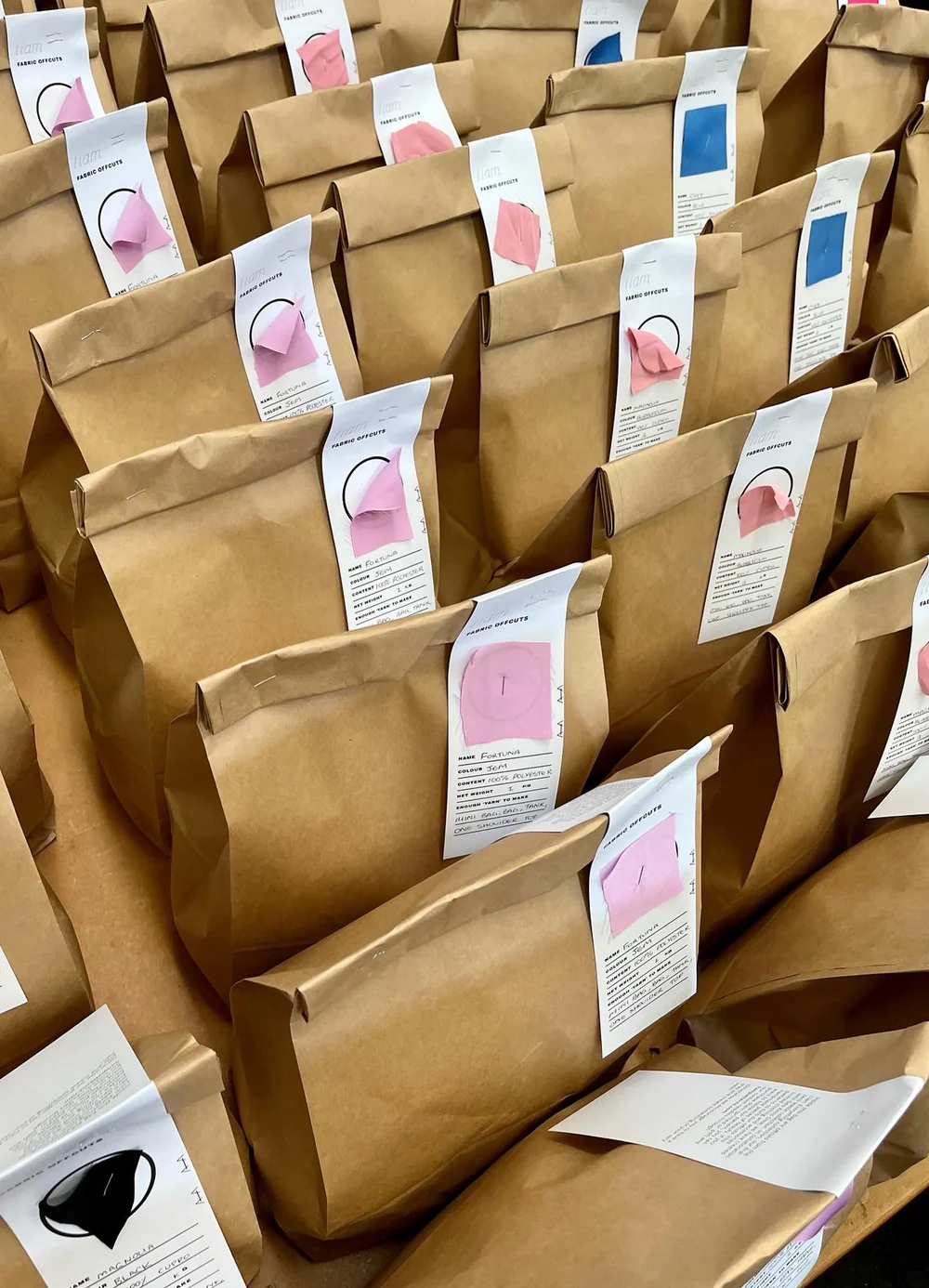
Community
We believe in strengthening & educating our local community whether that be those in our team, Rubettes that frequent our stores or those we haven’t met yet.
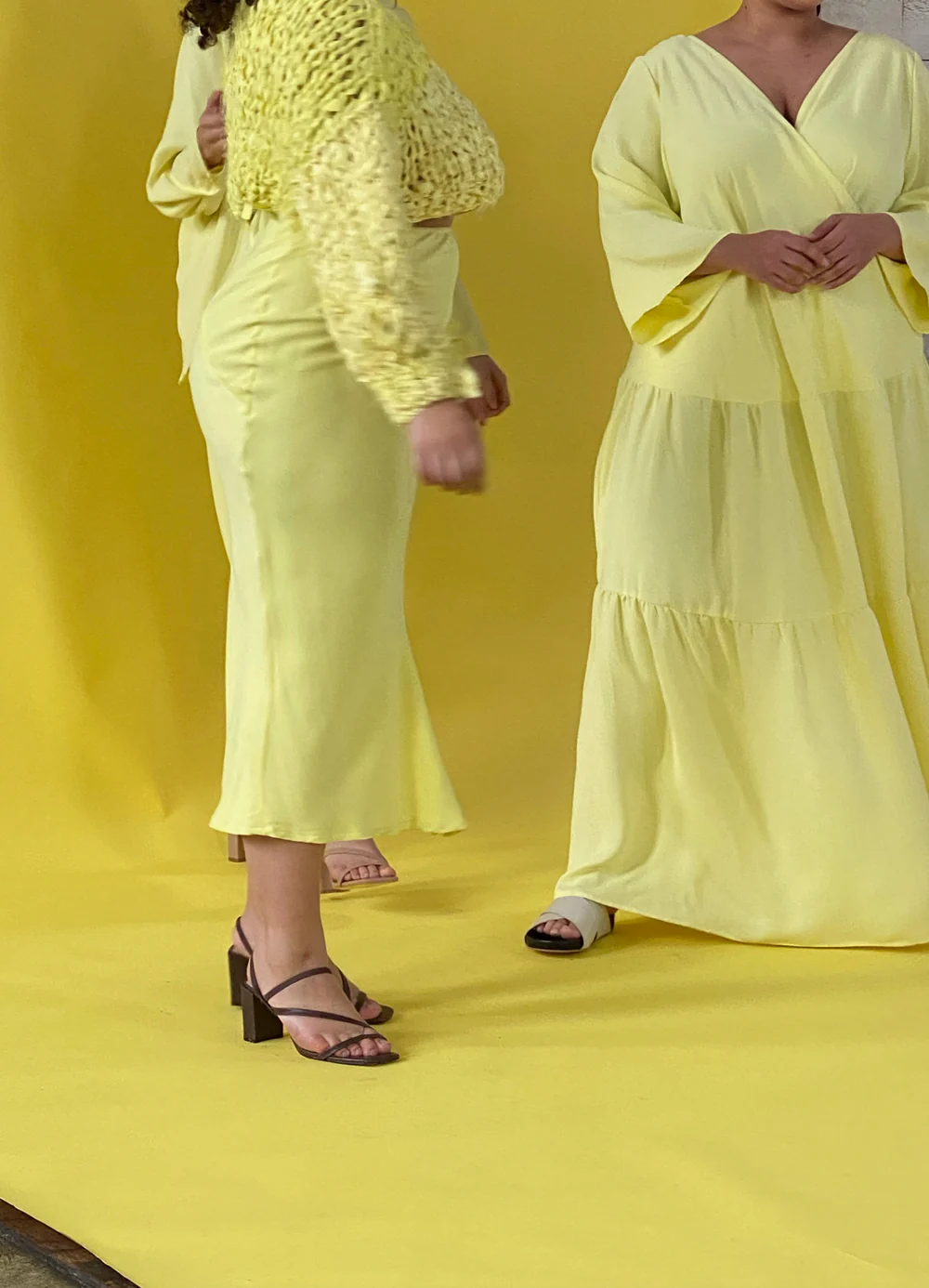
Carbon Curious
Insights into our carbon footprint and the plan to reduce our emissions.
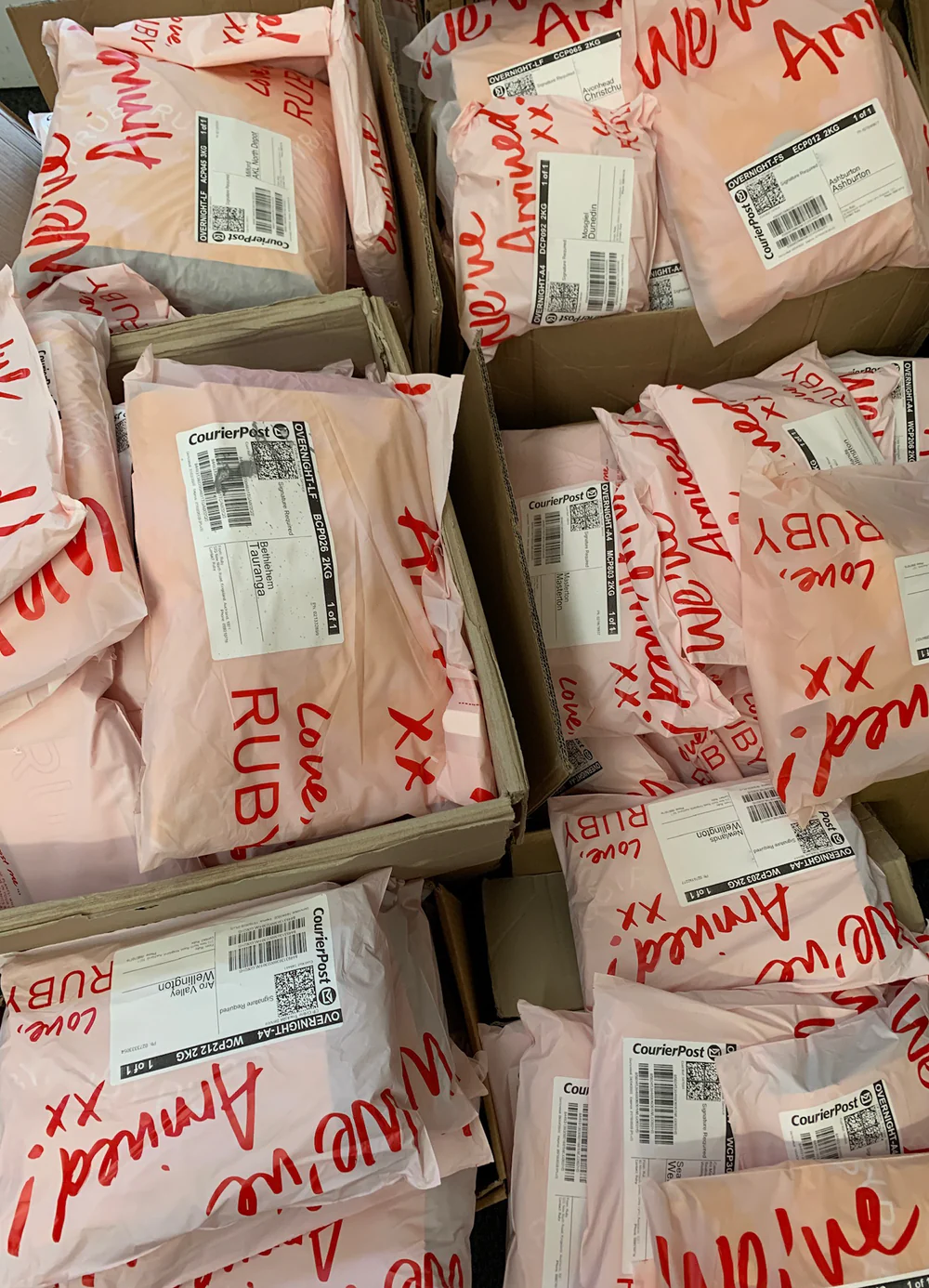
Product
Community
Carbon Curious
Education
Product

Community

Carbon Curious

Education
